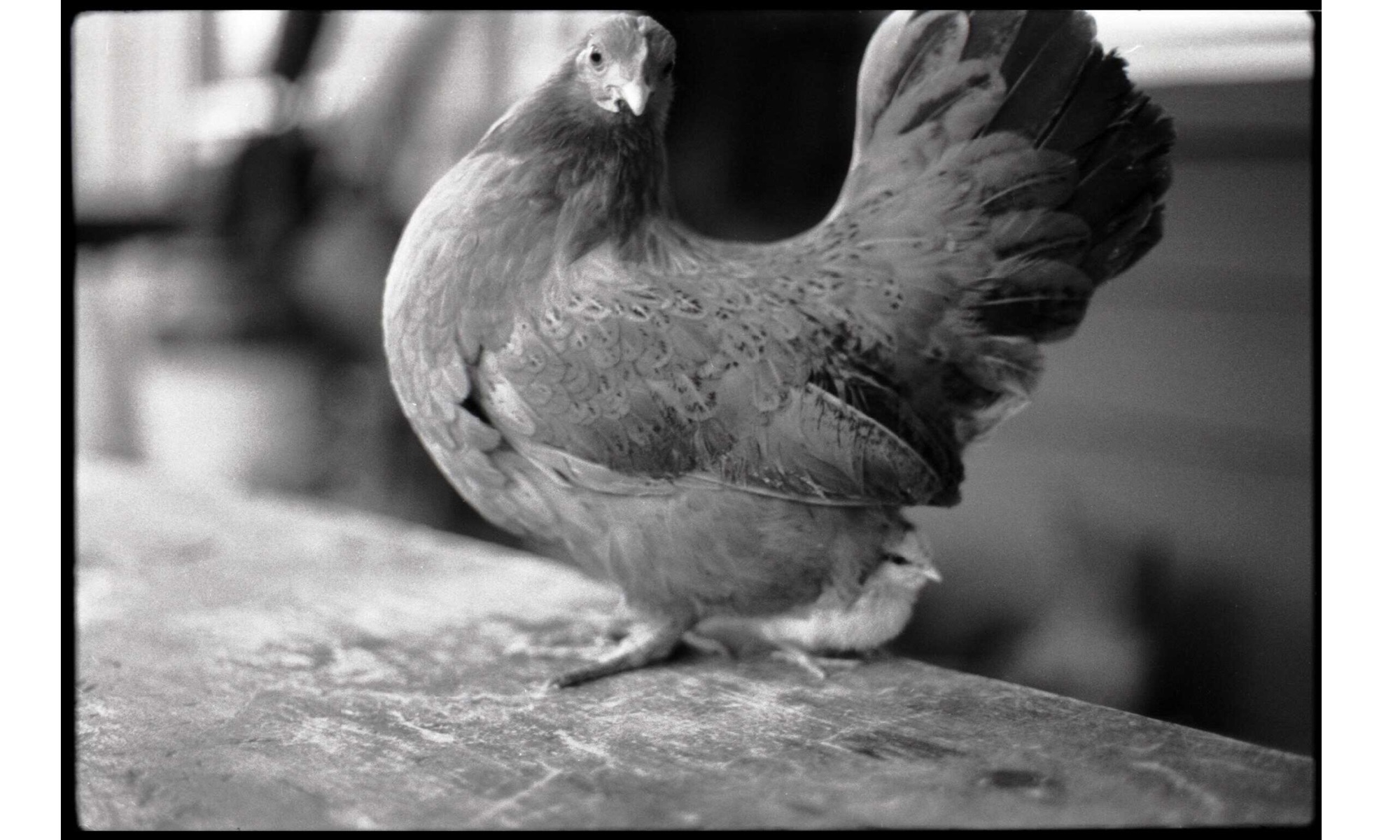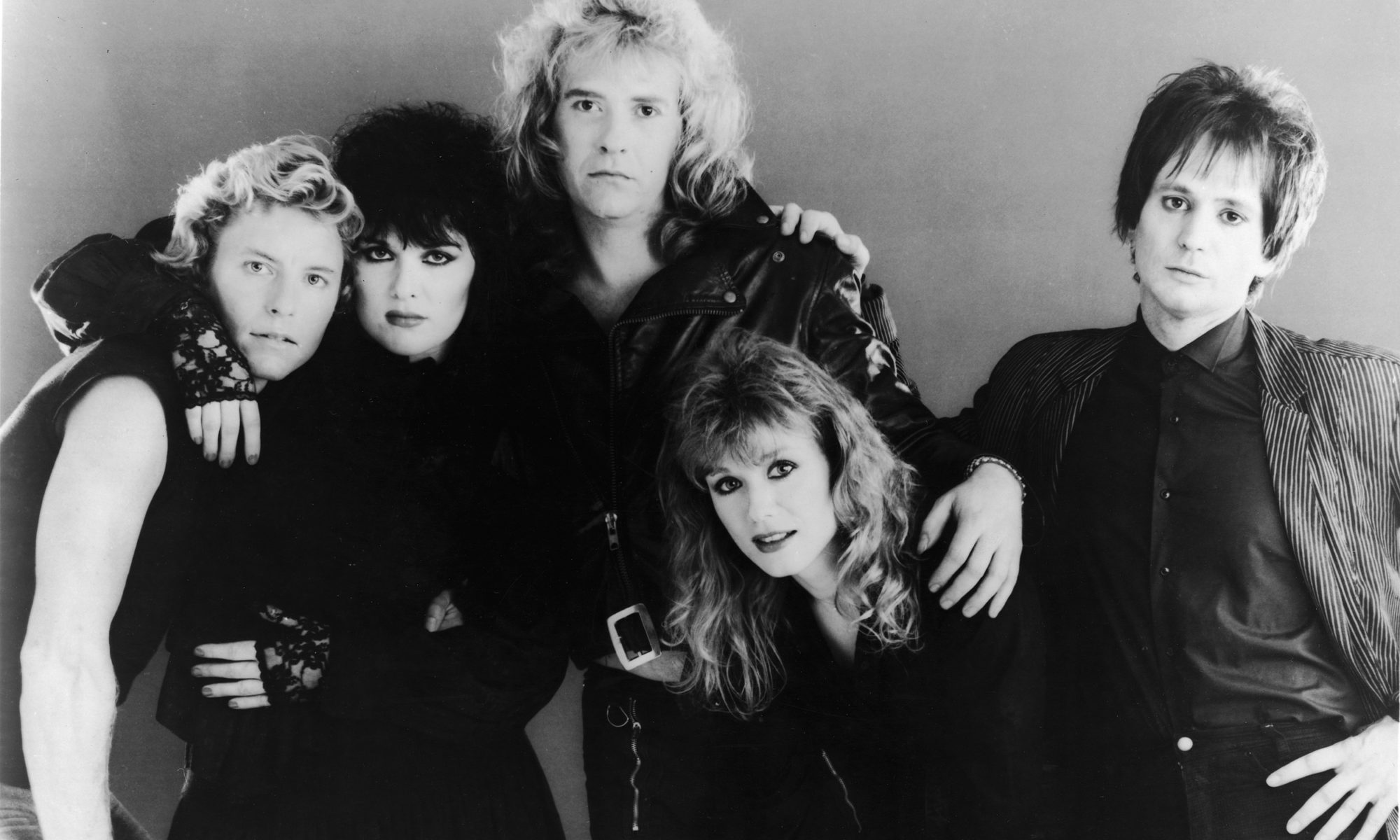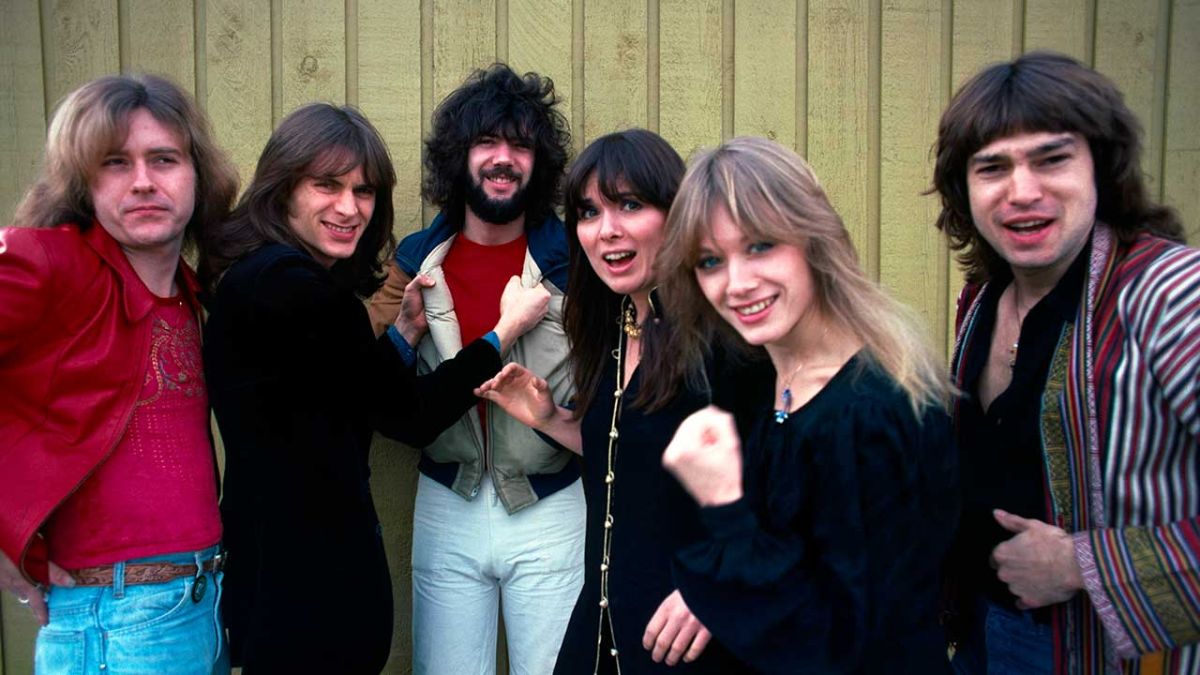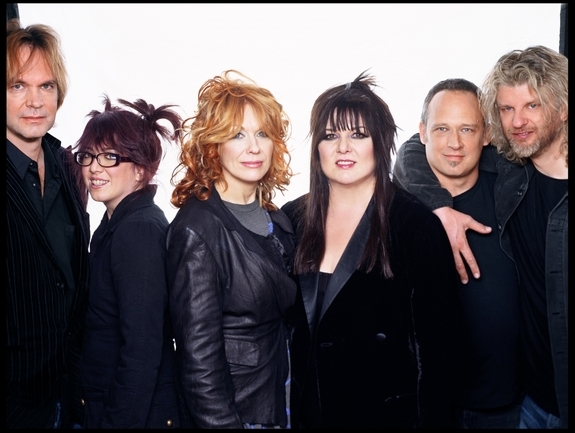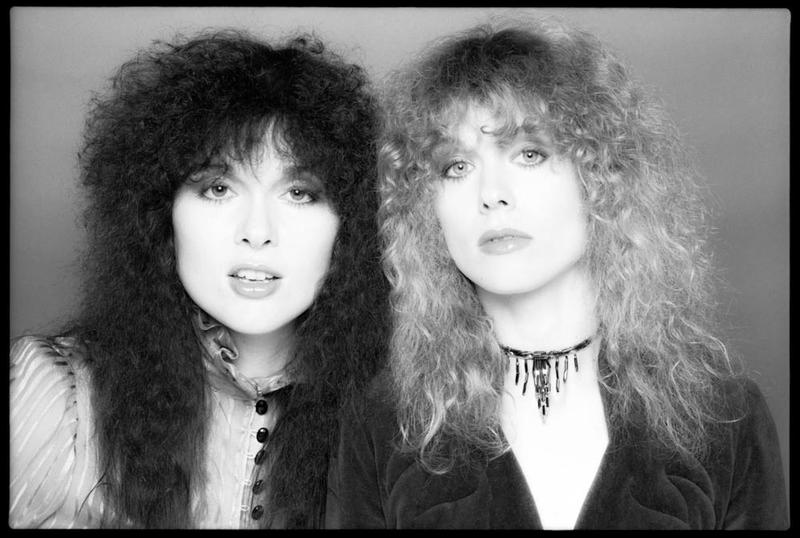As we enter the Top 20, we get an interesting mix of songs from all different points of Heart’s career. Nancy reaches her highest point on the chart with one of the songs on which she sings lead. There’s early Heart, there’s mid-career, big hair Heart, and there’s another Heart remake from their latest studio album. Still a little scattershot, but it all starts to coalesce soon. For now, let’s take a look at the Top 20!
#20 City’s Burning – Private Audition/Beautiful Broken (1982/2016)
written by Ann Wilson, Nancy Wilson, Sue Ennis
Harkening back to Dreamboat Annie’s Crazy On You, City’s Burning kicks off 1982 Private Audition album with an explosive acoustic guitar riff before the drums and electric guitar lead into Ann Wilson’s wailing vocals. It was a much needed kick in the pants for Heart to go back to their rock ‘n roll roots, yet interesting in that it’s one of the few rockers to appear on the album.
Inspired by the murder of John Lennon, City’s Burning tells the tale of a young, urban couple who hear the news and each react in their own, very different way. The energy and desperation are clearly evident in the vocals and instrumentation. The song also makes a nice tempo and mood shift midway through the song that leads into Howard Leese’s soulful, yet blistering guitar lead. It’s also one of the last times to really enjoy the amazing contribution that drummer Michael DeRosier brought to the table.
Why the band chose to re-record City’s Burning in 2016 for Beautiful Broken, I can’t tell you. Perhaps it was to reflect the times we were living in with Trump about to take office? This version is significantly different, rather than improved. The band sadly ditches the galloping acoustic guitar, and adds in the middle-eastern influenced keyboards that Heart favored at the time. The drums and electric guitar and heavy and ponderous giving the song a chunkier and dirtier feel that works. I like how you can hear the original electric guitar riff faintly in the background of the second chorus, and the bridge is more soulful, with some Rhodesy electric piano added in. The band surprisingly downplayed the lead guitar solo, but they threw in a new build with the guitar riff at the end. While the re-recorded version sounds more mature, I do miss the youthful enthusiasm of the original.
City’s Burning reached No. 15 on the US Billboard Rock Albums & Top Tracks chart, after the disappointing performance of the lead single, This Man Is Mine, and it was the song that received the most praise on the album reviews. Joe Konz of The Indianapolis Star wrote: City’s Burning promises to be one of the most powerful songs of the year. Its deficient lyrical clout is more than offset by an instrumental tour de force, a ravaging display of heavy metal rock. Equipped with the same harsh phrasing, shrill vocals and heavy-metal guitar licks that powered the hits Magic Man and Barracuda, City’s Burning runs roughshod over everything else on the band’s new LP.” While I tend to disagree with the harshness of that last statement, it is the highest charting song for me from Private Audition. Included below is the promotional video featuring a pretty stilted performance by the Wilson sisters and Mr. Leese, and the audio version of the re-recorded cut.
#19 Nada One – Dog & Butterfly (1978)
written by Ann Wilson, Nancy Wilson, Sue Ennis
Nada One marks the first of six songs to appear in my top 40 from 1978’s Dog & Butterfly album. It’s the final album that founding guitarist Roger Fisher was a member of the band, and also the album they toured for when I first saw them live. It’s the fourth studio album released by the band climbing to #17 on Billboard’s Top 200, and certified double platinum. Instead of an A and B side, the vinyl release featured a Dog side, focusing on their more rock-oriented sound, and a Butterfly side, which featured some gorgeous ballads and acoustic numbers. Nada One appeared on the Butterfly side.
This is also the highest appearance of a song featuring lead vocals by Nancy, whose softer, less assured vocals served the song well. This is a really complex song featuring several different movements, really fantastic acoustic guitar work by Nancy, another great orchestral arrangement by Howard Leese, and some of the most gorgeous harmonies between the two sisters. Nancy recounts where the unusual introduction came to be. “Sue’s (Ennis) family owned this Hammond ‘Piper Auto Cord’ keyboard system we nicknamed the ‘Fun Machine.’ It had started breaking, and it made these trippy sounds when it did. It was a machine in distress…” It sets a tone of mystery and leads into Nancy’s acoustic finger-picking intro that is really exquisite.
The instrumental break a little past the halfway mark is a decided change of tone, and another opportunity for Nancy to show off her guitar work, before Michael DeRosier’s stellar drums come rolling in and it all crescendos into another tonal shift where Ann and Nancy kill it with the vocals. That last big vocal sequence rolls through my had at night before I fall asleep and gives me shivers. Is it my imagination, or does Nada One channel a bit of Joni Mitchell?
#18 Heartless – Magazine (1978)
written by Ann Wilson, Nancy Wilson
Kicking off both the 1976 unauthorized release, and the 1978 authorized release of Magazine, Heartless is a full throttle rock & roll number, that also introduces that underlying funk feel that Heart uses so well in subsequent tracks such as Even it Up and Straight On. The song opens with a synth-laced, electric, finger-picking intro before a burst of drums kicks things off with some intricate bass and guitar interplay that sets the tone for things to come. I love the way Hearts often uses cool guitar lines rather than chunky power chords, as illustrated so beautifully on this number.
Ann’s killer vocals power this song through, as she blasts her lover for being heartless even as she finds herself coming back to him over and over. Add in Heart’s trademark harmonies, fantastic drumming, a return of the Moog synthesizer made famous in Magic Man as well as some funky, honky-tonk piano, some tight, funky bass riffs leading into the guitar solo, and a scorching double lead riff with Roger and Nancy, and it all adds up to a rock & roll classic that you can dance to. Great ending too.
Despite the myriad troubles with Mushroom Records that I’ve detailed earlier in this blog, the song, released as the first single from the authorized release, climbed to #24 on Billboard‘s Hot 100. Because of the reissue of the approved recording, only 5 months passed before the release of their subsequent album, Dog & Butterfly. I’ve included the re-recorded authorized version fro the 1978 release of Magazine, then a jacked up live version from very early Heart days for your viewing pleasure.
#17 Wait for an Answer – Bad Animals (1987)
written by Lisa Dal Bello
It’s a little surprising that a cover song should make so high on my list, but this cover is pretty special. First recorded by Dalbello (yep, she’s back again) on her 1984 album, Whomanfoursays, Wait for an Answer seems to be written specifically for Ann Wilson to sing. It helps that while the timbre of their voices are wildly different, Lisa Dalbello and Ann Wilson’s voice share power and range, and what seems dark, ominous and strange when sung by Dalbello, seems anthemic and filled with emotion when sung by Ann Wilson. Like many Heart songs, Ann’s massively overwrought vocals are really the main reason why this song makes it so high on this list. The instrumentation is fairly standard, with grand synths, pounding drums, and minor chords the start fairly sparsely, allowing Ann’s voice to fill the spaces, before spiraling into a vertigo-inducing crescendo skyward leaving everything in the dust hurrying after her. Honestly, it just keeps getting bigger and bigger, higher and higher, you can’t believe she’s still going… and it’s really just because she can.
There’s just the right note of concern and desperation in both Ann’s voice and the music, which serves the mysterious lyrics well. There’s some sort of danger, and the singer is trying to both protect someone and find them at the same time. It’s all very cloak and dagger which suits to song perfectly. Big credit to Dalbello for writing this song, and putting her own spin on it, but in this case, I’ve got to say I like the cover better than the original. Ann owns this song. I’ve included both so you can make up your own mind, although Dalbello also gets point for performing the song live and still nailing it.
#16 Back to Avalon – Desire Walks On/The Road Home (1993/1995)
written by Ann Wilson, Nancy Wilson, Kit Hain
The seventh and final track to appear on my Heart Top 40 from the Desire Walks On album, got an extra boost for the live version that appeared on their 1995 album, The Road Home. As I’ve mentioned before, Desire Walks On marked Heart’s tentative departure from the hit-making machine reliance that Capitol Records forced on them. While their one big single off the album, Will You Be There (In the Morning) was in that mode, the video was a marked departure, even with Nancy on lead vocals. No more cleavage bearing tops, or Nancy wagging her butt for the camera, no more hiding Ann in the shadows, or intense close-ups of her face to hide that fact that she wasn’t a toothpick. All this to say, if you read the lyrics of Back to Avalon, it’s clear that this is their “fuck-you, we’ve had enough of MTV-style, over-emphasis on image and hit songs” song.
“Forgive me I can’t stay here anymore
I’m leaving with the tide
This evening another breeze blew round my door and stirred me up inside
I’m breaking out of this tired old spell
I braved it out long and so well
And the phoenix flies straight and high back to Avalon
Now I’m on my way back where I belong, gonna go down with the sun
Back to Avalon”
While you could interpret this as being about a relationship, knowing the journey that Heart had been on since the start of their career, and the marked change in direction heralded by Desire Walks On, I think it’s clear it’s about their career. And it’s got such a great opener with Nancy showing her stuff on the acoustic guitar again. Great three part harmonies with Ann, Nancy and Howard on the chorus, and I love when Ann lets loose for the bridge. Classic acoustic Heart all the way. Take a listen to the original studio track from Desire, then check out an acoustic, live performance from the mid-90’s (which also give you the intro to Crazy On You as a bonus). I actually might like the live version better!
